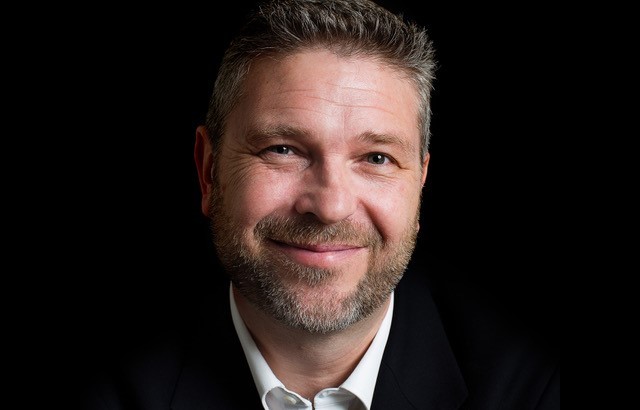Q&A with Dr Graham Easton - Why doctors need to be good communicators
Dr Graham Easton is Head of the Clinical and Communication Skills Unit at Barts and The London School of Medicine and Dentistry, Queen Mary University of London, and Professor of Communication Skills. He joined Queen Mary in January 2020, and in this Q&A he talks about the importance of doctors having good clinical communication skills and how this applies during the Covid-19 pandemic.

Dr Graham Easton
What are you doing in your job that is new or different because of Covid-19?
We are working with actors to help medical students learn about video and telephone consultations, which have become the norm in general practice during the crisis. We are having to accelerate and scale up our teaching - and do it online. We’ve launched a podcast about clinical communication skills to support health professionals and as a resource for students. It covers things like communicating in PPE protective kit (including sign language), sharing best practice across teams and countries, breaking bad news, and video and telephone consultations in primary care.
What’s it been like settling into your job during a pandemic?
In at the deep end! Like most departments at Queen Mary, we’ve had to transform our teaching to online learning in a matter of weeks. Our team has worked hard to create live webinars and tutorials, discussion forums, skills videos, workbooks and quizzes.
How is your training as a GP useful?
I am helping with the Pandemic Multiagency Response Team, a specialist team handling deaths that don't happen in hospital. My role includes reviewing deaths and providing death certificates. I’ve also been involved with training at the Nightingale hospital, and may soon start work for the Covid-19 Clinical Assessment service.
How has Covid-19 changed how medical staff need to communicate?
In the midst of a crisis, communication skills become even more important. Careful listening can easily become a casualty. That can mean crossed wires between doctor and patient which can be unsafe and frustrating.
In critical care and particularly towards the end of life, the skills of having difficult conversations or breaking bad news can make a huge difference to both patients and relatives. Teams of health professionals - often newly formed - need to communicate effectively with each other. This is a real challenge in stressful situations and often with protective masks and gowns acting as a barrier to normal verbal and non-verbal communication.
What drew you to work at Queen Mary?
Its excellence. I was also a student at The London Hospital qualifying in 1990. At Barts and The London, we have a long history of innovation and excellence in clinical skills. The Clinical Skills Centre was founded in 1994 as a joint enterprise between the School of Medicine and Dentistry and the School of Nursing and Midwifery and was the first of its kind in the UK. The school was the first to introduce objective structured clinical examinations (OSCEs) as part of MBBS qualifying examinations in 1993. In 2005 the Centre was awarded ‘Centre for Excellence in Teaching and Learning’ status, and awarded £3.15 million from the Higher Education Funding Council for England in recognition of its excellence in providing professional training in healthcare and to promote further development.
And why have you specialised in communication?
So much about being an effective doctor or health professional hinges on good communication - building rapport and trust, getting to the heart of the patient's problems and concerns, explaining things clearly, helping with decision-making, having difficult conversations. Plus the importance of communication between professionals. Get the communication right and we know patients are more satisfied, more likely to stick with treatments, and less likely to complain, and doctors are less likely to burn out. There are measurable health impacts too, with studies suggesting, for example, a positive impact on things like blood pressure, weight loss, blood sugar levels, pain, and the length of hospital stays following a heart attack.
What do you love about your work?
I recently met up with some Barts graduates working as junior doctors. It was heartening to hear them say how vital their communication skills training had been for "real-life" doctoring. Sometimes at medical school it can feel like it's only the knowledge and the practical skills that really matter - but ask most doctors who've had any clinical experience and they'll tell you the "softer" side of comm skills is just as crucial. It's the "glue" that holds it all together.
What did you learn as a medical reporter for the BBC covering the Ebola crisis in 2014 in West Africa that helps you now?
Despite all the western medical support, the real key to success was understanding local culture and social practices. It was about listening, clear and respectful communication, and cultural sensitivity. Once people started to get that right, things started to improve. I think we are learning similar lessons during this outbreak - the importance of treating people as humans, understanding how humans behave, for example, during lockdown.
More information
- The Clin Comm Podcast - an audio podcast all about communication in the clinical setting - from the latest thinking in the field to practical tips for busy healthcare professionals.
Related items

4 July 2025

1 July 2025
For media information, contact:
